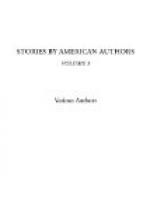The numbers were, meanwhile, rapidly drawn, the prizes being arranged in the order of their value, each ticket taken from the hat denoting a prize, until all were distributed. “Number twenty-eight—a pair of elegant vases!” “Number sixteen—three bottles of vermouth!” “Number one hundred and eighty-four—candlesticks and two bottles of vermouth!” “Number four hundred and ten—three bottles of vermouth and a set of jewelry!” “Number three hundred and nineteen—five bottles of vermouth!” and so on, with more bottles of vermouth than anything else. Indeed, each prize had to be floated on a few litres of the Turin specialty, and I began to think that perhaps it would have been better, after all, not to have given my circus friend the ticket, if he were to draw drink with it.
Many prizes were called out, and at last only two numbers remained. The excitement was now intense, and it did not diminish when the conductor of the lottery announced that the last two numbers would draw the two great prizes of the evening, namely: An order on a Turin tailor for a suit of clothes, and an order on a jeweller for a gold watch and chain. The first of these two last numbers was taken out of the hat.
“Number twenty-five—order for a suit of clothes!” was the announcement.
Twenty-five had been the number of my ticket. I did not hear the last number drawn, for the Hungarian was in front of my seat trying to press the order on me, and protesting against appropriating my good luck. I wrote my name on the programme for him, with the simple address, U.S.A., persuaded him to accept the windfall, and went home. The next morning I left town.
On the occasion of our mutual recognition in Paris, the circus boy began to relate, as soon as the first flush of his surprise was over, the story of his life since the incident in Turin. He had been to New York and Boston, and all the large sea-coast towns; to Chicago, St. Louis, and even to San Francisco; always with a circus company. Whenever he had had an opportunity in the United States, he had asked for news of me.
“The United States is so large!” he said, with a sigh. “Every one told me that, when I showed the Turin programme with your name on it.”
The reason why he had kept the programme and tried to find me in America was because the lottery ticket had been the direct means of his emigration, and, in fact, the first piece of good fortune that had befallen him since he left his native town. When he joined the circus he was an apprentice, and beside a certain number of hours of gymnastic practice daily and service in the ring both afternoon and evening, he had half a dozen horses to care for, his part of the tent to pack up and load, and the team to drive to the next stopping-place. For sixteen and often eighteen hours of hard work he received only his food and his performing clothes. When he was counted as one of the troupe his duties were lightened, but he got only enough money to pay his way with difficulty. Without a lira ahead, and with no clothes but his rough working-suit and his performing costume, he could not hope to escape from this sort of bondage. The luck of number twenty-five had put him on his feet.




